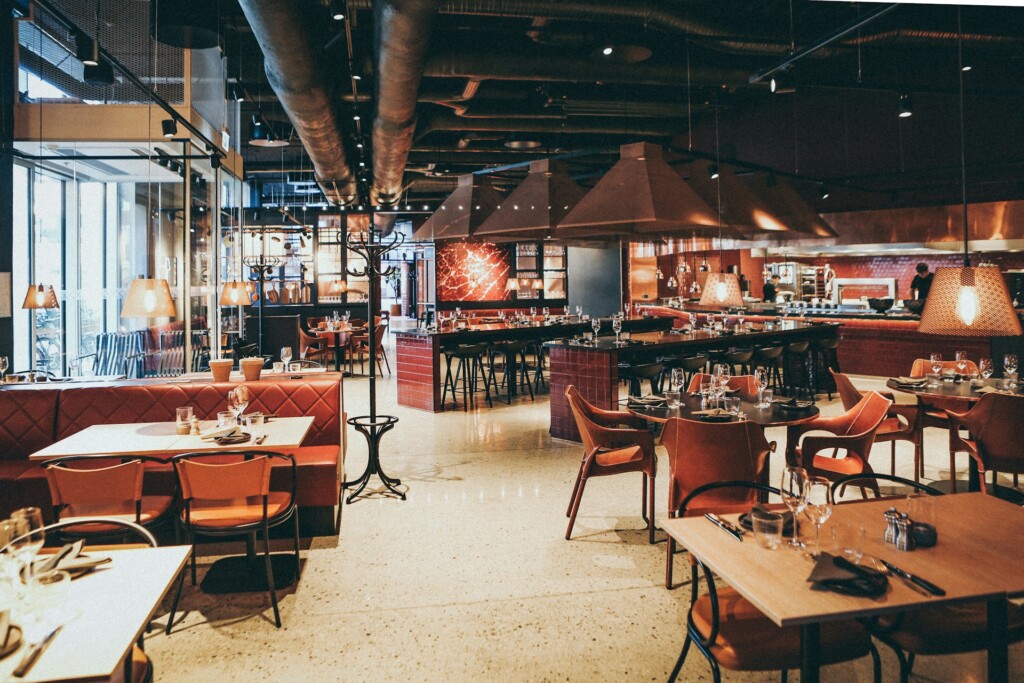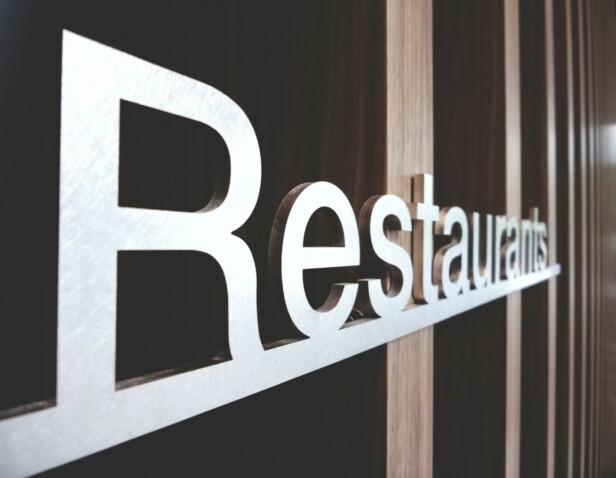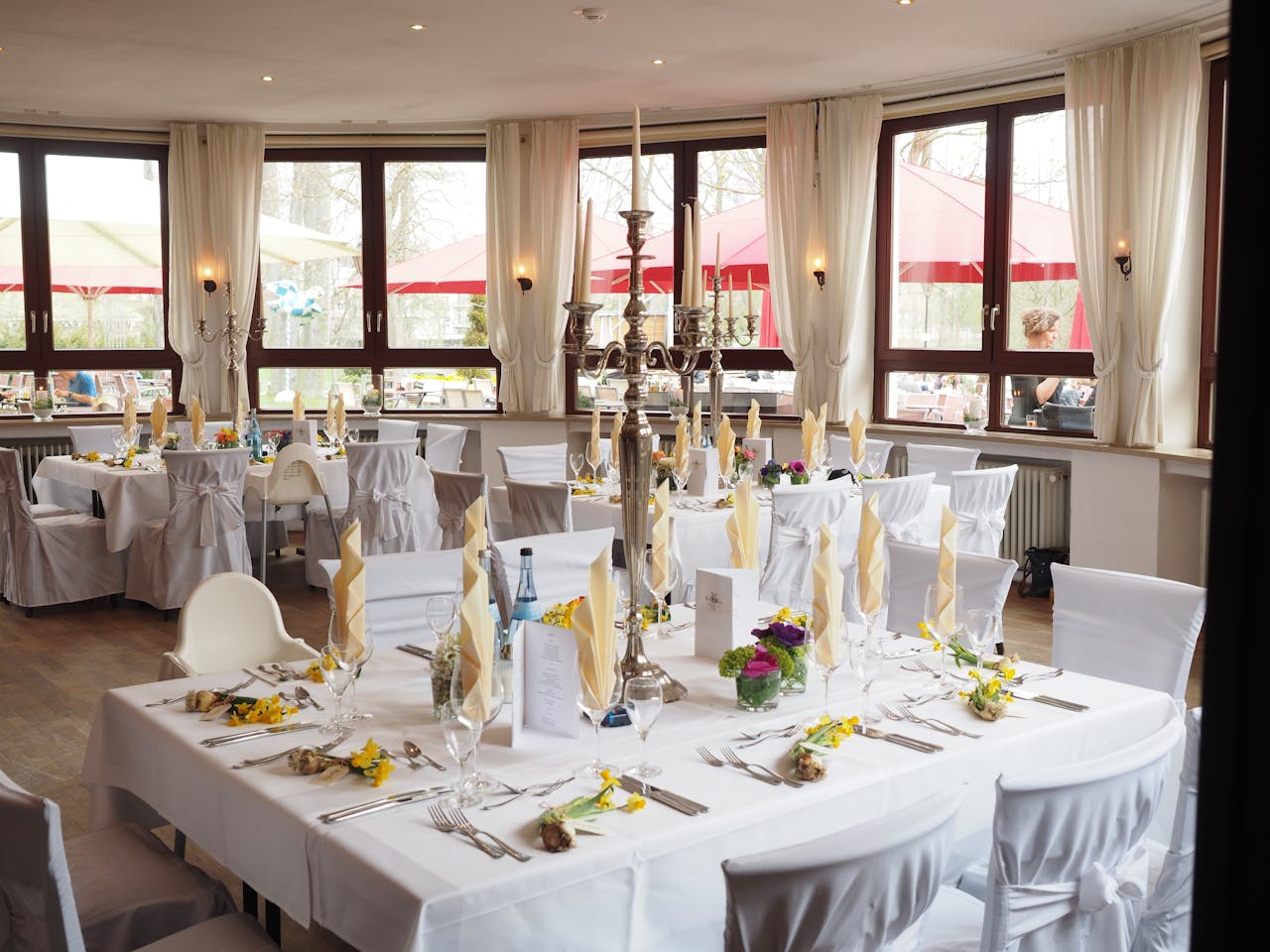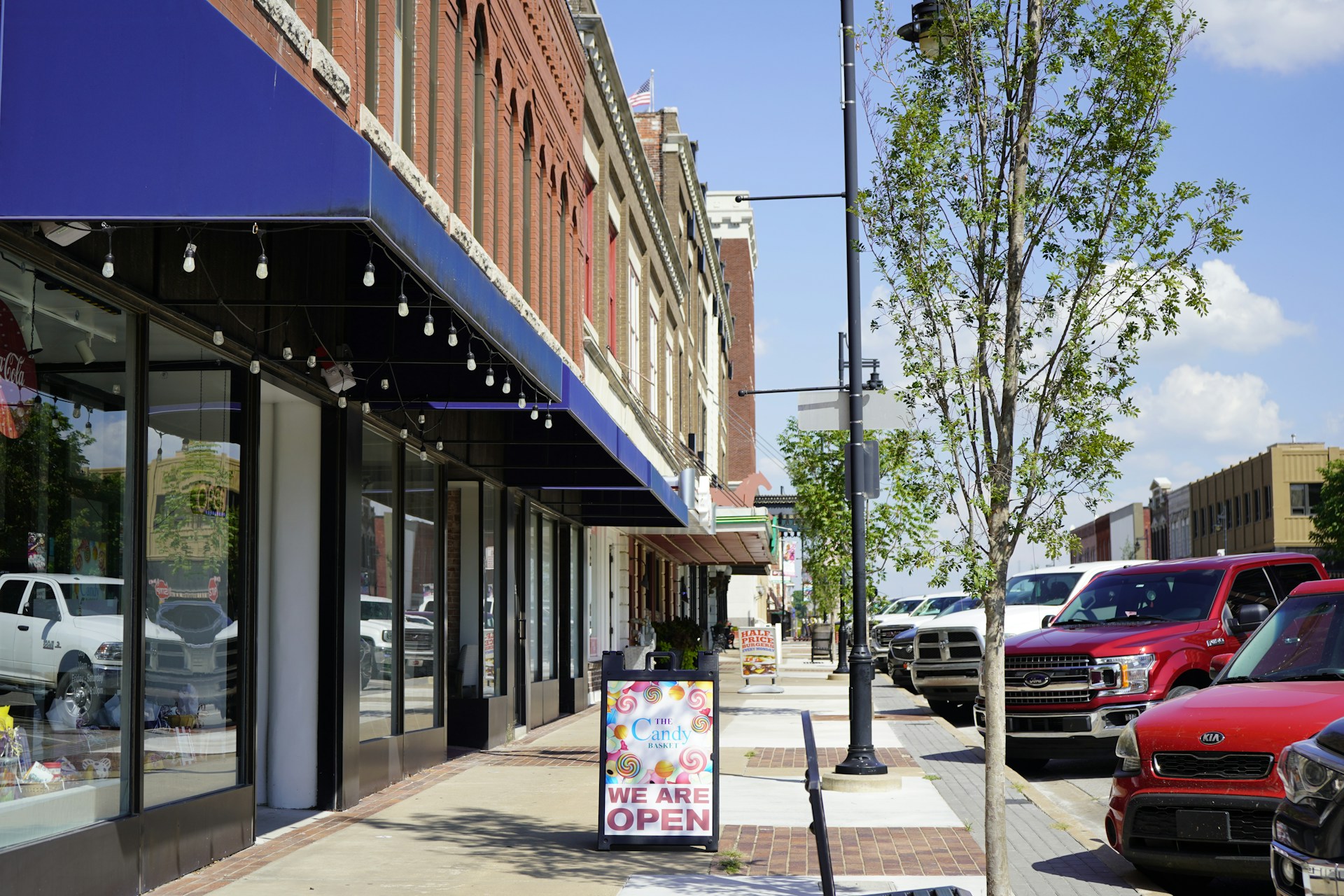Franchise restaurant development in Houston requires a coordinated sequence of planning, permitting, construction, and pre-opening phases that satisfy both franchisor brand standards and Houston municipal requirements. We work with developers and property owners who understand that successful buildouts demand precise alignment between the Franchise Disclosure Document specifications and local regulatory frameworks.
At EB3 Construction, we guide clients through core buildout stages: franchisor requirement analysis, site compliance verification, brand-specific design execution, comprehensive budgeting with financing coordination, permit acquisition through the Houston Permitting Center, construction management, equipment procurement and installation, staff training coordination, marketing preparation, and final compliance verification. Houston projects specifically require coordination with both the Houston Permitting Center for commercial plan review and the Houston Health Department for food permit issuance and pre-operational inspections.
What Should You Plan Before Design And Construction?

The foundation of any successful franchise restaurant build-out starts with thorough planning. We approach this critical phase by examining franchisor requirements, evaluating potential sites, assembling the right professional team, and establishing a comprehensive budget with secured financing.
Understanding Franchisor Requirements
We begin every project by conducting a detailed review of the Franchise Disclosure Document (FDD) and brand standards documentation. These documents outline non-negotiable specifications for materials, layouts, equipment, and operational requirements that maintain brand consistency across all locations. The FDD contains critical information about estimated initial investment costs, including construction expenses, equipment purchases, and operational requirements that directly impact our planning process.
Franchise agreements typically specify exact color schemes, fixture types, kitchen equipment brands, and even specific suppliers for certain materials. We work closely with franchise partners to understand these requirements early, preventing costly changes during construction. Brand consistency requirements often extend beyond aesthetics to include operational elements like kitchen workflow patterns, customer seating arrangements, and technology integration points.
Site Selection Criteria
We evaluate potential locations based on multiple factors that affect both construction feasibility and long-term operational success. Visibility and accessibility remain primary considerations, as these directly impact customer traffic patterns and construction access for equipment delivery and utility connections. We analyze demographic data to ensure the location aligns with the franchise’s target customer base while considering traffic patterns, parking availability, and proximity to complementary businesses.
Zoning compliance forms a crucial component of our site evaluation process. We verify that the intended use aligns with local zoning regulations and identify any special permits or variances required before construction begins. This includes reviewing setback requirements, parking ratios, signage restrictions, and any architectural design standards imposed by local ordinances or property management agreements.
Professional Team Assembly
We engage architects and engineers who specialize in commercial franchise construction to translate brand specifications into detailed construction documents. These professionals understand the unique challenges of franchise build-outs, including the need to balance standardized brand requirements with local building codes and site-specific constraints. Our design team coordinates mechanical, electrical, and plumbing systems to support franchise-specific equipment while ensuring compliance with health department requirements.
The design development process involves creating detailed floor plans that optimize kitchen workflow, customer circulation patterns, and staff efficiency zones. We work with structural engineers to address any site-specific challenges and coordinate with local utility companies to ensure adequate service capacity for restaurant operations. Fire protection engineers help design sprinkler systems and egress routes that meet both local fire codes and franchise operational requirements.
Budget Development And Financing
We develop comprehensive budgets that account for all construction costs, equipment purchases, permit fees, and licensing expenses. Our budgeting process includes detailed line items for site preparation, utility connections, interior build-out, kitchen equipment, dining room furnishings, and technology installations. We factor in contingency allowances for unforeseen conditions and change orders that commonly arise during franchise construction projects.
Financing arrangements require early attention due to the lead times involved in loan processing and approval. We help clients understand the full scope of financial requirements, including working capital needs for the initial operating period. Many franchisors offer financing assistance or have established relationships with lenders familiar with their specific business models, which can streamline the approval process and potentially offer more favorable terms.
How Do Houston Permits And Health Approvals Work?
Proper documentation forms the foundation of Houston’s restaurant permitting process. We prepare scaled plans that clearly show the Health Department exactly how the space will operate. The floor plan includes equipment layout, detailed specifications for all food service equipment, elevations showing plumbing fixtures and cooking equipment placement, and a comprehensive room-finish schedule that specifies materials and colors for each area.
Remodel projects require additional documentation beyond new construction. We submit existing conditions plans, demolition drawings, and proposed layouts to give reviewers a complete picture of the transformation. This three-part documentation helps the Houston Health Department understand what changes are occurring and how they affect food safety protocols.
Commercial Plan Review Process
The Houston Permitting Center at 1002 Washington Ave coordinates the multi-department review process. We submit plans to their Commercial Plan Review Section on the third floor, where the Health Department Plan Review Section operates. This centralized location streamlines communication between city departments during the approval process.
Multiple city departments examine different aspects of the project. Planning & Development verifies zoning compliance and development requirements. Building Code Enforcement checks structural safety and construction standards. Public Works reviews utility connections, drainage systems, and infrastructure impacts. The Fire Department examines fire safety systems, egress routes, and emergency access. All departments also verify ADA compliance throughout the design.
Review Timeline And Construction Approval
Plan review typically takes two to six weeks once submitted. We’ve learned that incomplete submissions or code conflicts can extend this timeline significantly. Revisions require additional review cycles, so we ensure plans meet all requirements before initial submission to avoid delays.
Construction must follow approved plans exactly. When field conditions require changes during the build-out, we obtain approval on modified plans before proceeding. This prevents inspection failures and keeps the project on schedule. Any deviation from approved drawings can trigger re-inspection requirements and delay opening.
Pre-Operational Inspection And Permits
We schedule the pre-operational inspection by calling the Consumer Health Services Permit Office at 832-393-5100 once construction is complete. The inspector visits the site with the approved plan set and verifies that the built space matches the approved design. They check equipment placement, finishes, plumbing fixtures, and food safety elements against the submitted drawings.
Successful inspection triggers an invoice for the Food Permit. We bring this invoice to 8000 North Stadium Drive to pay the fee and receive the actual permit. The business cannot operate until this permit is purchased and properly displayed. Even with approved plans, final approval depends on field inspection results and code compliance verification.
The Certificate of Occupancy represents the final step in the permitting process. After all required inspections pass and permits are secured, the city issues this document authorizing restaurant operations. We coordinate closely with clients to ensure all inspections are scheduled properly and any deficiencies are addressed quickly to avoid operational delays.
What Happens During The Construction And Build-Out Phase?

We select construction partners with proven experience in commercial franchise build-outs. Experience matters when coordinating the tight timelines and detailed brand requirements that franchise projects demand. The right contractor understands how to navigate MEP systems while maintaining brand consistency.
Regular communication controls both schedule and budget. We establish weekly progress meetings with all trades to identify potential delays before they impact the timeline. Clear communication channels prevent costly misunderstandings and keep all stakeholders aligned on project milestones.
Prioritizing Operational Flow In Tenant Improvements
Kitchen workflow drives the entire layout strategy. We position equipment to create efficient paths between prep stations, cooking areas, and service points. This reduces staff movement time and improves order fulfillment speed during peak hours.
Customer flow receives equal attention during space planning. We design entry points, ordering areas, and seating arrangements to minimize bottlenecks. Clear sight lines from the entrance help customers navigate the space while maintaining the franchise’s intended dining experience.
Brand design elements integrate throughout the tenant improvements. We coordinate wall finishes, lighting placement, and signage locations to match franchisor specifications. These details create the consistent brand experience customers expect across all franchise locations.
Maintaining Code And ADA Compliance
Code compliance verification occurs at each construction phase. We review building code requirements for fire safety, structural modifications, and electrical systems before installation begins. This prevents costly corrections during final inspections.
ADA compliance guides all accessibility features. We verify door widths, restroom layouts, and counter heights meet current ADA standards. Counter seating areas and pathways receive particular attention to ensure full accessibility throughout the restaurant space.
Health code compliance shapes kitchen construction decisions. We coordinate with local health departments to verify equipment placement, ventilation systems, and surface materials meet food service requirements. Early coordination prevents delays during pre-operational inspections.
Coordinating MEP Systems And Equipment Installation
Mechanical, electrical, and plumbing coordination begins early in construction. We sequence MEP installations to avoid conflicts between systems while maintaining access for future maintenance. Proper coordination prevents delays and reduces the need for costly modifications.
Fire safety systems integrate with the overall MEP plan. We coordinate sprinkler placement with ceiling layouts and ensure fire suppression systems meet both local codes and franchise requirements. Kitchen hood systems receive special attention due to their complexity and regulatory requirements.
Signage permits and installation align with approved plans. We coordinate exterior signage with local zoning requirements while ensuring brand visibility standards are met. Interior signage placement follows the approved layout to maintain consistency with the franchisor’s design intent.
Equipment ordering timing directly impacts construction efficiency. We order franchise-specified kitchen equipment early enough to coordinate delivery with construction milestones. This ensures equipment arrives when the space is ready for installation, avoiding storage issues or installation delays that can push back the opening date.
How Do You Prepare For Opening Day And Ongoing Operations?
The pre-opening phase requires methodical coordination of systems, personnel, and marketing to ensure a smooth launch. We approach this phase as the critical bridge between construction completion and sustainable operations.
Systems Installation And Testing
POS systems require comprehensive testing across all transaction types before staff training begins. We verify payment processing, menu programming, and reporting functionality during low-pressure periods. Audio systems need calibration for both dining areas and kitchen communication, while security cameras must cover all operational zones with clear sight lines.
Safety systems deserve particular attention in franchise operations. Fire suppression systems, emergency lighting, and alarm panels require both installation verification and staff familiarization. We coordinate these tests with local fire departments to ensure compliance with Houston safety codes while meeting franchisor specifications.
Staff Recruitment And Training Programs
Hiring begins weeks before opening to allow thorough training on franchisor protocols. We recruit team members who demonstrate both technical skills and alignment with brand values. Training programs cover operational procedures, customer service standards, and franchise-specific protocols that distinguish the brand from competitors.
Operations manual training ensures consistency across all locations. We implement hands-on training sessions that simulate real service conditions, from order taking through food preparation. Staff must demonstrate proficiency in POS operations, food safety procedures, and customer interaction before opening day.
Inventory setup coordination happens parallel to staff training. We establish par levels based on projected sales volume and ensure proper storage rotation procedures. Initial inventory orders align with training schedules so staff practice with actual products they will serve.
Marketing Launch And Community Outreach
Local marketing builds on franchisor materials while addressing community-specific opportunities. We develop grand opening campaigns that introduce the brand to local customers through targeted promotions and community partnerships. Social media presence launches before opening to build anticipation and educate potential customers about menu offerings.
Community outreach establishes relationships with local business groups, schools, and organizations. These connections often generate sustained customer traffic beyond the initial opening period. We coordinate soft opening events for local influencers and community leaders to generate positive word-of-mouth marketing.
Final Walk-Through And Compliance Verification
The final walk-through examines every detail against franchisor brand standards and local code requirements. We verify equipment placement matches approved plans, signage meets visibility and safety requirements, and all systems function as designed. This inspection catches last-minute issues that could delay opening or create compliance problems.
Brand compliance verification ensures consistency with franchise standards across all customer touchpoints. We check menu boards, interior design elements, and service protocols match franchisor specifications. Documentation of this compliance protects both franchisee and franchisor interests during future audits.
Post-Opening Performance Monitoring
Restaurant audits begin within the first month of operation to identify operational gaps before they become habitual problems. We evaluate service consistency, food quality, and adherence to franchise protocols through systematic observation and customer feedback analysis. These early audits provide valuable data for operational adjustments.
Regular site visits maintain consistency across multiple locations while identifying best practices for broader implementation. We monitor key performance indicators including customer satisfaction scores, operational efficiency metrics, and brand compliance ratings. This ongoing oversight ensures long-term success while protecting franchise investment value.
Conclusion And Next Steps

A successful franchise restaurant buildout in Houston transforms initial brand requirements into a fully operational location that meets both franchisor standards and local regulations. From initial FDD review through final Certificate of Occupancy, we coordinate each phase to ensure brand consistency while navigating Houston’s specific permitting requirements. The timeline from planning to opening typically spans several months, making careful sequencing essential for controlling costs and meeting opening deadlines.
The foundation of any successful buildout lies in thorough preparation and proactive compliance management. We prioritize early alignment between franchisor specifications and Houston Health Department requirements during the plan review phase. This approach prevents costly revisions during construction and streamlines the pre-operational inspection process. Equipment coordination, staff training, and local marketing preparations should begin well before final inspections to ensure smooth operations from day one. Regular site visits and brand audits after opening help maintain the operational standards that protect both franchise value and regulatory compliance across your Houston locations.
Contact EB3 Construction to discuss your franchise restaurant buildout requirements in Houston.




